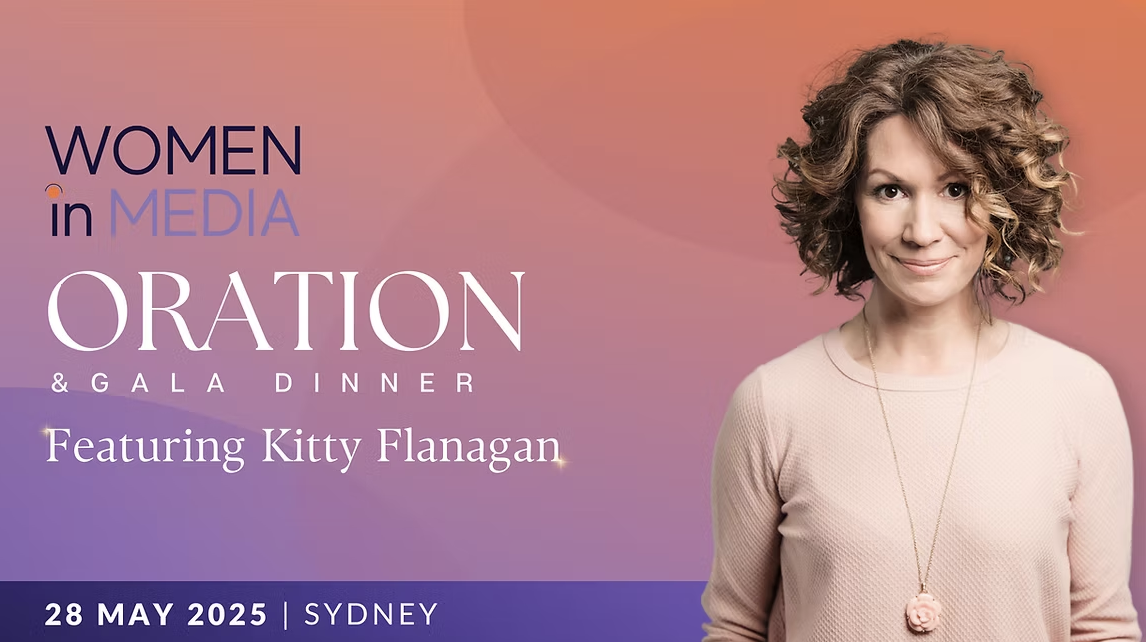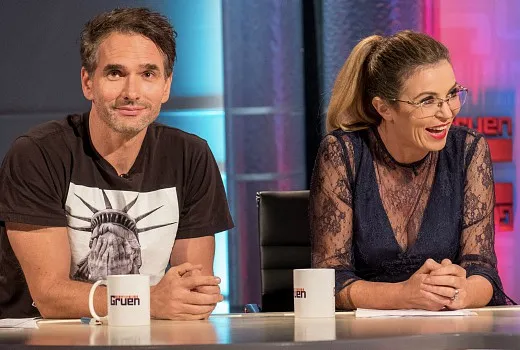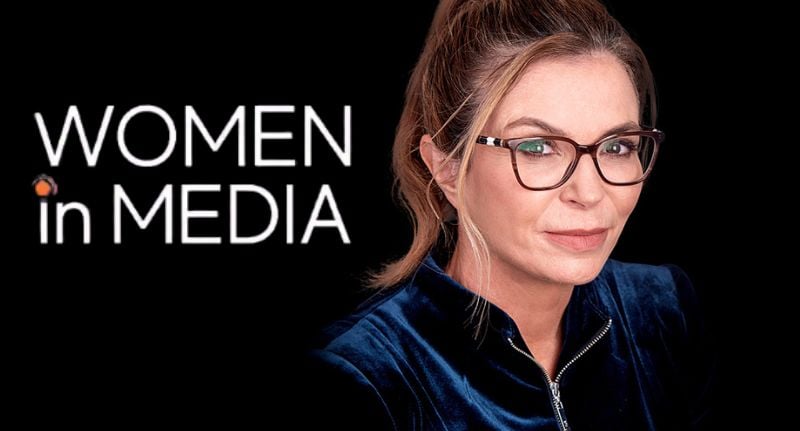She’s no stranger to cutting through the noise.
But in the lead-up to the 2025 Women in Media Oration, where she’ll serve as MC to comedian Kitty Flanagan’s keynote, Dee Madigan isn’t cracking jokes, she’s issuing warnings.
The Campaign Edge executive creative director, known for her sharp political insights and unflinching commentary on gender dynamics, has pulled back the curtain on a trio of challenges facing women in media, advertising and business more broadly.
In conversation on Mediaweek’s Newsmakers podcast, Madigan unpacks why working from home could entrench disadvantage, how corporate Australia might be inching toward a “backlash era”, and why sexism hasn’t gone away… it’s just shape-shifted.

Remote work: flexible or dangerous?
On the surface, remote work seems like a win for women juggling paid labour and unpaid caregiving. But Madigan sees a different story playing out beneath the home-office desk.
“I think the danger now is women are overrepresented in terms of working from home,” she said. “And that’s a long-term problem.”
For agencies and advertisers trying to build inclusive leadership pipelines, this is more than an HR footnote, it’s a structural red flag.
The risk, according to Madigan, lies in invisibility. When you’re not physically present in the office, you’re less likely to be noticed for stretch projects, sponsorship, or promotion.
“If you’re not seen, then you’re not going to be considered,” she said. “Culture’s hard to build when people aren’t around. Soft skills, mentorship, those sideways conversations, they matter.”
The issue calls into question how hybrid models are impacting creative collaboration, talent retention and ultimately, campaign outcomes.
Are we designing systems around convenience, or performance?
Madigan’s solution? Flexibility, sure. But not at the cost of connection. And certainly not at the cost of future female leadership.
You can hear Madigan chat to Mediaweek’s Natasha Lee here:
The backlash no one wants to talk about
Beyond flexible work, Madigan warned of a growing tension simmering beneath progress. And it’s not coming from where you might expect.
“We are definitely going to see a backlash. We shouldn’t underestimate that,” she told Newsmakers. “No time in history have men lost so much power in such a short time.”
It’s not just the diehards pushing back. Madigan says even so-called allies, men who openly support feminism, can falter when it means giving up space, influence or access.
The result? A subtle undermining of gender equity gains, couched in neutral-sounding language like “best person for the job”.
She pointed to the removal of diversity measures in global politics and hiring as key danger signs, drawing a straight line between what’s happening in the US and what’s quietly unfolding in Australia.
“When companies remove diversity as something to consider, men start creeping back in greater numbers than is fair,” she said adding that diversity isn’t charity, it’s strategy.
“Agencies without inclusive teams are, quite simply, ill-equipped to reach the modern market”.

Todd Sampson and Dee Madigan on The Gruen Transfer.
The invisible sexism still doing damage
For all the gains women have made, Madigan says the gender war has simply moved underground.
“Sexism hasn’t disappeared, it’s just gone cleverer,” she said. “It’s systemic, it’s subtle, it’s still the boys’ club…but now it’s harder to call out.”
This sleeker, more insidious brand of bias often flies under the radar. No overt slurs. No smoking guns. Just fewer opportunities. Less airtime. More plausible deniability.
And in an industry where brand safety, optics and optics fatigue are real, women face the added pressure of self-policing their own complaints, afraid to be labelled as overreaching, dramatic or “crying wolf.”
“We’ve got to be careful,” Madigan noted. “But it’s really hard to be careful, because it’s more subtle than ever.”
Why the industry should care
For media professionals navigating post-pandemic pivots, new budget pressures and audience fragmentation, it’s tempting to view gender equity as a social issue, important, but not urgent. Madigan flips that on its head.
Diversity isn’t a “nice to have.” It’s a commercial imperative. Especially in advertising, where understanding the market means reflecting the market.
“If you’re targeting an increasingly diverse audience and you don’t have people in your agency who are diverse, you’re just not going to do well,” she said.
Madigan’s commentary isn’t just a rallying cry for change; it’s a cautionary tale for those content with surface-level progress. Because the forces pushing women back aren’t gone. They’ve just got better lighting.
Want more?
Dee Madigan joins Mediaweek’s Newsmakers podcast this week to dig deeper into the forces reshaping gender dynamics in media, politics and advertising. From boardroom blind spots to the future of creative workplaces, you won’t want to miss what she has to say.
Subscribe wherever you get your podcasts or click here.
The Women in Media Oration Gala Dinner takes place Wednesday, 28 May, at Dockside, Cockle Bay Wharf, Sydney. To get tickets click here.
